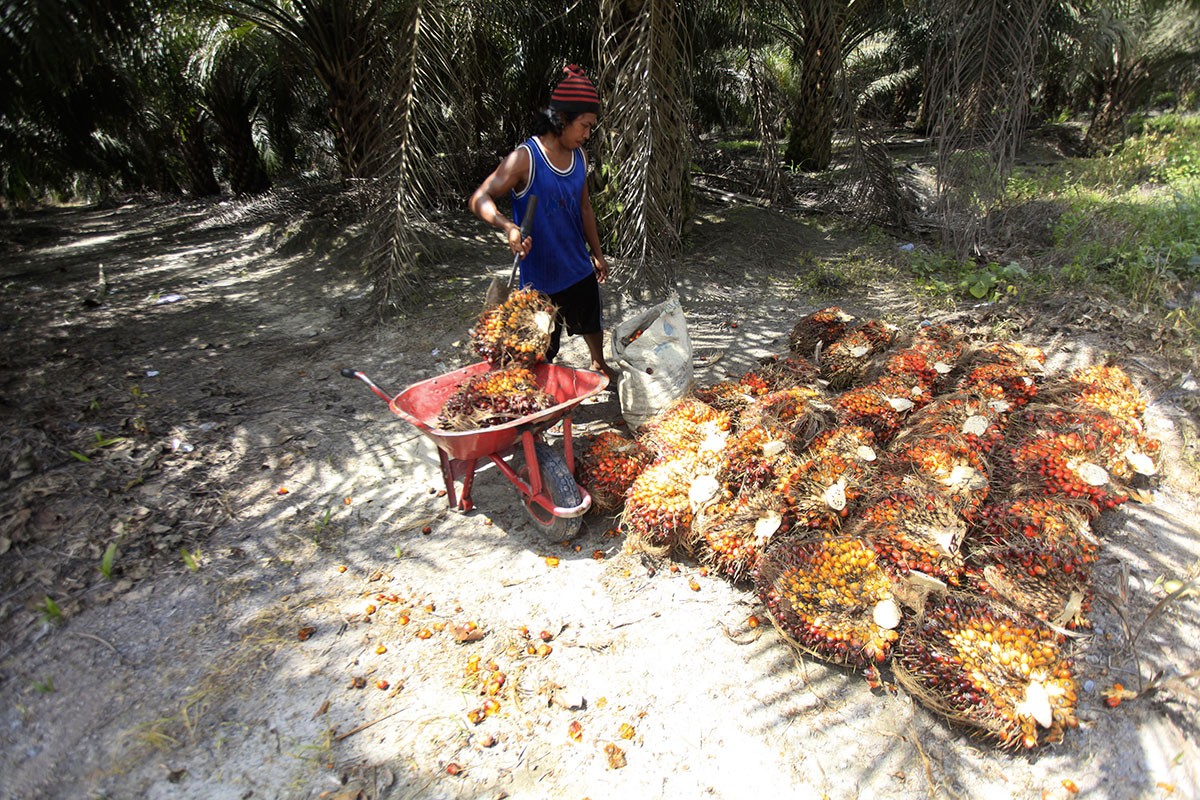Popular Reads
Top Results
Can't find what you're looking for?
View all search resultsPopular Reads
Top Results
Can't find what you're looking for?
View all search resultsIndonesia raises palm oil issue at ASEAN-EU meeting
Change text size
Gift Premium Articles
to Anyone
I
ndonesia again voiced its concerns over the European Union's restrictive policies on palm oil during an ASEAN-EU meeting in Brussels on Monday.
Deputy Foreign Minister AM Fachir, who led the Indonesian delegation, presented data about the contribution of the palm oil sector to the country's economy as well as the Sustainable Development Goals (SDGs), a universal call to eradicate poverty and protect the environment.
“Palm oil is a strategic commodity for Indonesia, particularly for small growers. About 20 million people in ASEAN rely on the palm oil industry,” Fachir said in a statement issued on Tuesday.
He explained that palm oil contributed to 12 of the 17 SDGs set by the United Nations, such as poverty eradication, eliminating starvation and ensuring the affordability of clean energy.
Palm oil has faced negative campaigns in EU countries as the commodity is linked to environmental degradation, particularly deforestation, but Indonesia has interpreted it as a move to protect local vegetable oils like soybean oil and sunflower oil.
In June 2018, EU members states and the European Parliament reached an agreement on the revised Renewable Energy Directive. They decided on a 32 percent renewable energy target and complete phase-out of palm oil use in transport by 2030.
Indonesian crude palm oil exports from January to November in 2018 declined to US$15.2 billion from $16.9 million in the same period in 2017. (bbn)










